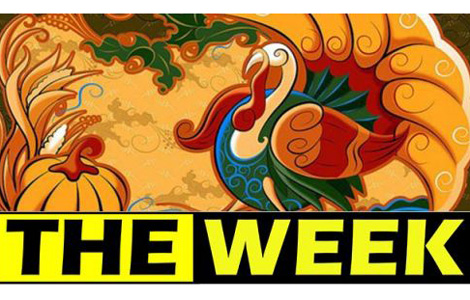Abacus listed as intangible cultural heritage by UNESCO
Updated: 2013-12-05 09:35
(chinadaily.com.cn)
|
||||||||
|
[Photo/Xinhua] |
The Zhusuan, otherwise known as the Chinese abacus was officially listed as an intangible cultural heritage at the 8th Annual UNESCO World Heritage Congress on December 4th in Baku, Azerbaijan.
The abacus is an ancient calculating method with a history of over 2,500 years. It is regarded as the fifth invention in Chinese history and was listed as a national-level intangible cultural heritage in 2008.
The abacus’s popularity has been compromised over the course of time by the emergence of digital calculators; however, they are still in use in many of China’s rural marketplaces. Today, the abacus has a richer value as a cultural symbol rather than a practical calculating tool.
The UNESCO stated that intangible cultural heritage could bring a sense of identification to the people who own it and it is essential to maintaining cultural diversity and human creativity.
Since 2001, China has successfully applied for 37 items to be listed as World Intangible Cultural Heritages, including Kunqu opera, the shadow play and acupuncture.
China now has the most intangible cultural heritage items listed by UNESCO.
Facts about the abacus:
The Chinese abacus, also called suanpan, can be traced back to the Spring and Autumn Period (770-476BC).
It has two decks and more than seven rods. The upper deck, which is known as heaven, has two beads on each rod. These beads each have the value of five. There are five beads on the bottom deck, known as earth. Each of these has the value of one. The beads are moved up and down during calculation.

 Post-baby Duchess
Post-baby Duchess
 Victoria Beckham S/S 2014 presented during NYFW
Victoria Beckham S/S 2014 presented during NYFW
 'Despicable' minions upset Depp's 'Lone Ranger' at box office
'Despicable' minions upset Depp's 'Lone Ranger' at box office
 'Taken 2' grabs movie box office crown
'Taken 2' grabs movie box office crown
 Rihanna's 'Diamonds' tops UK pop chart
Rihanna's 'Diamonds' tops UK pop chart
 Fans get look at vintage Rolling Stones
Fans get look at vintage Rolling Stones
 Celebrities attend Power of Women event
Celebrities attend Power of Women event
 Ang Lee breaks 'every rule' to make unlikely new Life of Pi film
Ang Lee breaks 'every rule' to make unlikely new Life of Pi film
Most Viewed
Editor's Picks

|

|

|

|

|

|
Today's Top News
Japan launches security council
Dialogue 'key to relations'
Value-added tax reform expands
China eyes high-level FTAs network
Huawei putting US on hold
Air identification zone shadows Biden trip
Detroit eligible for bankruptcy
Chinese realtor endows Harvard
US Weekly

|

|








